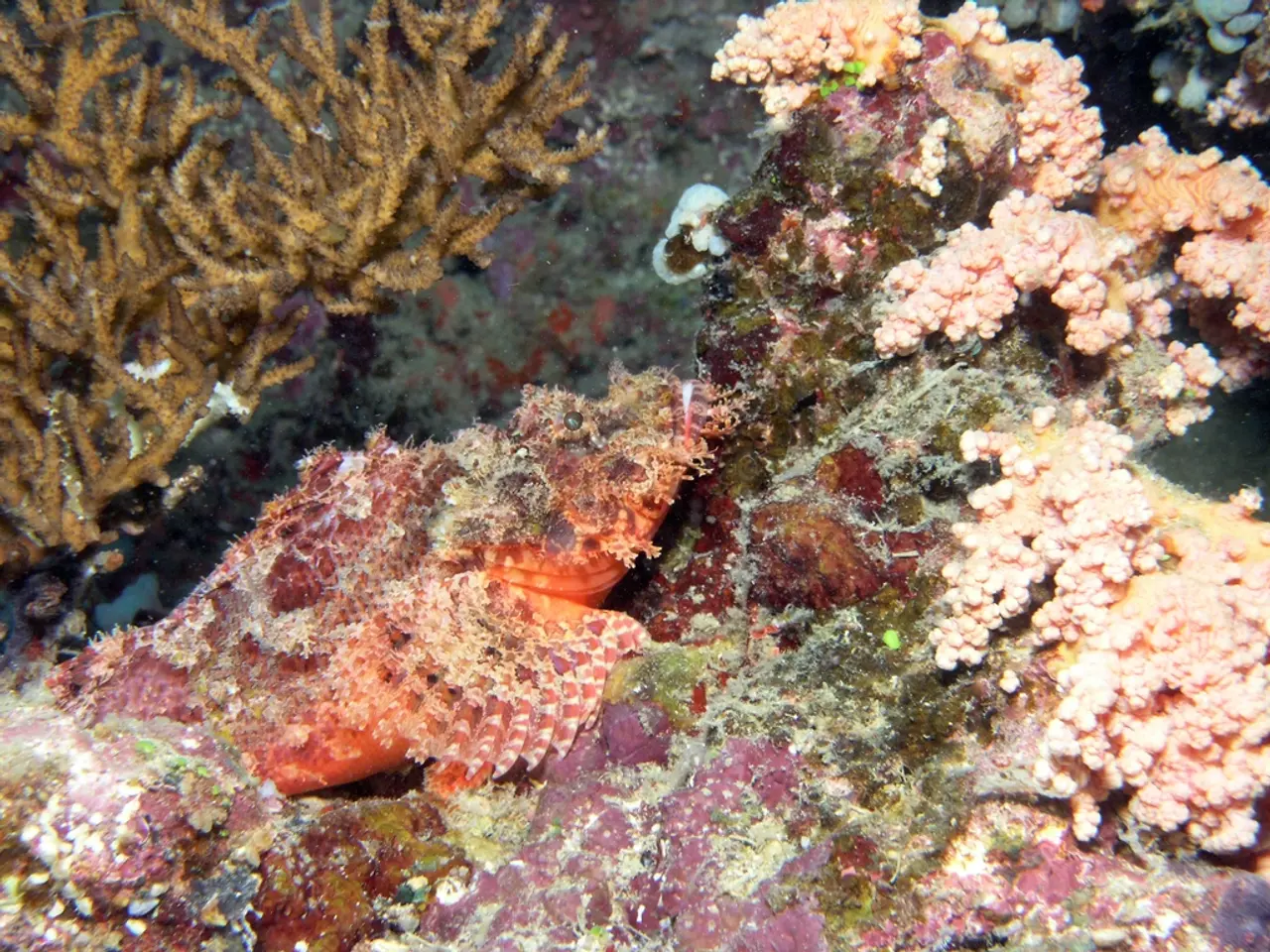Preserving Biological Diversity: Collaborative Studies Are Crucial
The National Biodiversity Future Centre (NBFC), a pioneering research and innovation hub in Italy, has been making strides in the field of biodiversity conservation and ecosystem restoration. Funded by the Ministry of University and Research through NextGeneration EU funds, the NBFC is Italy's first national centre dedicated to the protection and restoration of nature.
The NBFC, under the leadership of Scientific Director Massimo Labra, has produced over 2,000 joint scientific publications, reports, and over a hundred prototypes of devices. These outputs are essential for transforming biodiversity into concrete innovation for businesses and lasting value for society, according to Labra.
One of the key projects the NBFC is involved in is the Mares project for marine ecosystem restoration. This initiative includes suitability analysis, testing of innovative solutions, and performance monitoring. The centre is also working on the restoration of terrestrial biodiversity, aiming to promote effective conservation of habitats.
The NBFC's objectives align with advancing biodiversity research and promoting sustainable development, which can indirectly support ecosystem restoration efforts. The centre has analysed the results of 764 marine ecosystem restoration interventions worldwide, concluding that these actions have a high success rate in over 64% of cases.
The NBFC is collaborating with various entities to achieve its goals. It works with LifeWatch ERIC to address biodiversity and ecosystem responses to climate change. The centre also collaborates with the NbS Italy Hub and other organisations to promote territorial regeneration through Nature-Based Solutions (NbS), which can apply to terrestrial ecosystems and indirectly benefit marine environments by improving overall ecosystem health.
The centre is also making efforts in education and capacity building. The Summer School on Urban Nature-Based Solutions, supported by the National Biodiversity Future Center, aims to equip professionals with tools to integrate NbS into ecosystem services assessment, indirectly supporting terrestrial ecosystem restoration.
The NBFC has awarded 56 scholarships in the academic year 2024/2025 for the national interest doctorate on biodiversity, involving 25 institutions and companies. The centre has recruited nearly 800 young scientists, with 57% being women.
The EU regulation on the restoration of nature imposes binding objectives that each country must respect. The National Biodiversity Forum, currently being held at Università Bicocca in Milan, is a platform for discussing these objectives and strategies for achieving them.
Biodiversity, according to Alberto Di Minin, the centre's Director of Innovation, can be a competitive lever for businesses, potentially transforming them into champions compared to competitors. It can open up new markets, respond to the demands of more discerning consumers, and anticipate the development of new products and services.
The NBFC, with a grant of €320 million, is a significant investment in Italy's future. The centre, created in September 2022, is also working on increasing the protection of Italian marine ecosystems. The centre's work is fundamental for monitoring the state of conservation of biodiversity and the quality of habitats, and for generating new products and processes inspired by nature.
The NBFC, in its continual pursuit of advancing biodiversity research, has initiated a scholarship program for 56 students in the academic year 2024/2025, focusing on environmental-science and education-and-self-development, aiming to attract and nurture young talents in the field of biodiversity conservation.
In collaborating with LifeWatch ERIC, the NBFC is furthering its research into climate-change and its impact on biodiversity, with the objective of developing innovative solutions for the mitigation of environmental issues, thereby contributing to the field of science.




